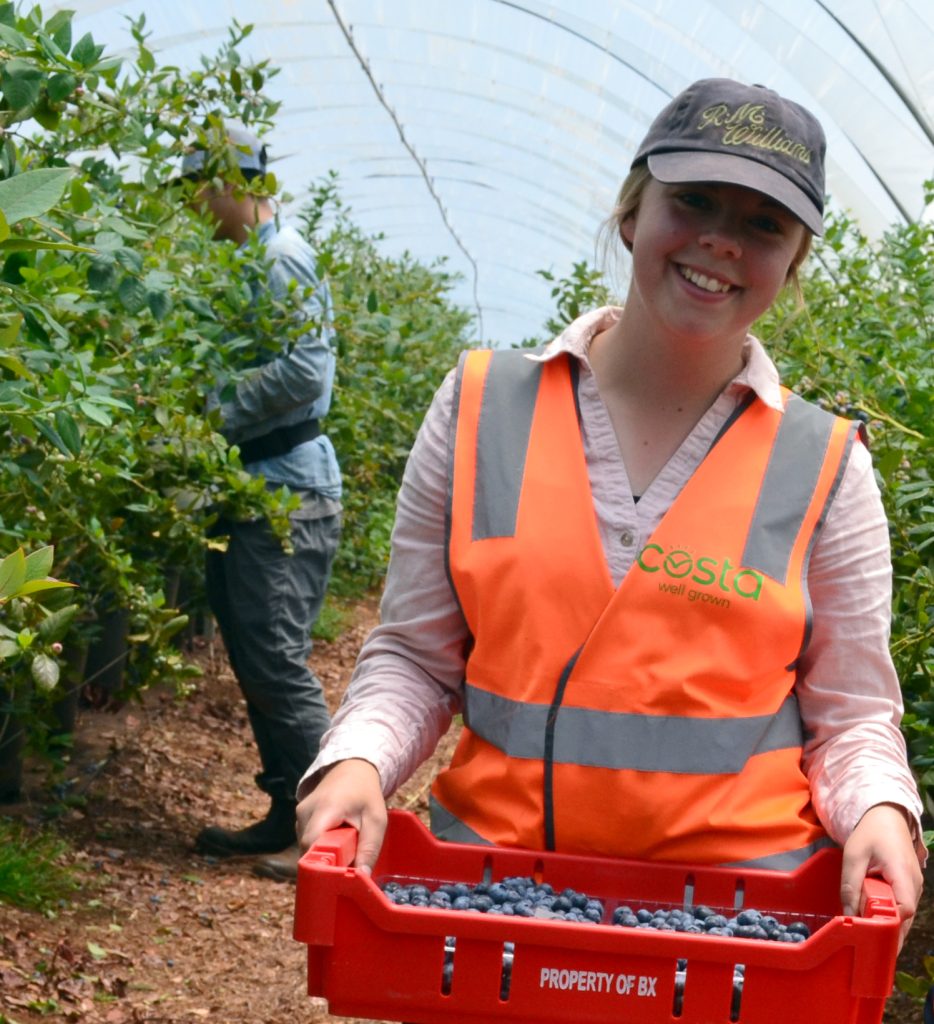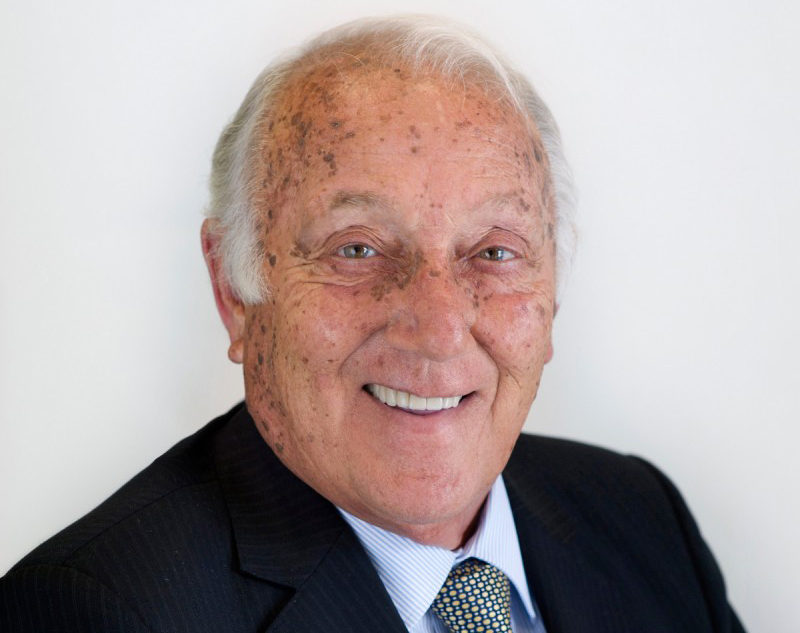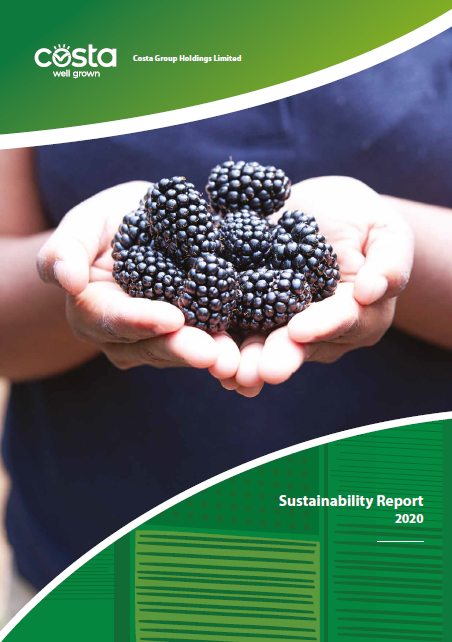Research maps blueberry quality after harvest

An electronic tongue is one of the tools being used as part of an Honours research project looking at the impact of storage conditions on the quality of blueberries. Sarah McKay, who is the 2021 recipient of the Costa Honours Scholarship in Agricultural Science worth $10,000, is investigating post-harvest storage conditions and the influence this […]
Passing of Frank Costa AO

Costa Group is saddened to learn of the passing of Frank Costa AO. Frank was a great Australian who through his leadership and vision helped build the Costa Group into the global leading fresh produce business that it is today. Frank was a people champion and he lived by the mantra of “hire for character, […]
Sustainability Report 2020

Costa has released its Sustainability Report 2020, covering all Costa operations in Australia, Morocco and China. Costa has adopted a systematic and tailored Sustainable Commercial Farming strategy to ensure that we work for the long term to progressively improve the yield and quality of our healthy and nutritious products whilst achieving a per unit reduction […]
Track your Lovacado journey

Australia’s leading avocado grower and marketer Costa Group has teamed up with trace technology leaders iTrazo TraceTech to develop a Digital Traceability platform for their Lovacado avocados. Launching across major and independent retailers nationally this March, Costa’s Lovacado Shepard avocados, grown in Central Queensland, will have a QR code integrated into the fruit stickers to […]
Leo focuses on sustainability

Sustainability is a key focus for Leo Boden, who is the recipient of the 2021 Costa Berries Scholarship in Horticultural Science at the University of Queensland. Leo is in his third year of a dual degree in Agribusiness and Sustainable Agriculture, with a Horticulture major. “My family has no agricultural background but when I was […]
Scholarship sets students up for success

A scholarship worth $10,000 is now open for local students in the Guyra, Armidale, Glen Innes and Inverell region, who are starting their university education in horticulture or agriculture. The Costa Tomatoes New England Tertiary Scholarship is offered each year to a student who has finished their Year 12 studies and is embarking on their […]
Tumbarumba berries go organic

The Costa Berry farms in the Tumbarumba region are the first farms across the Costa Group to convert to organically grown produce. The farms, located at Rosewood and Taradale in the Tumbarumba region in the Snowy Mountains, are ideally suited to organic growing due to their high elevation and cool winter, which minimises pest pressure. […]
Supporting healthy eating habits

Costa’s Perino Tomatoes and Coles are partnering to raise funds for the Stephanie Alexander Kitchen Garden Foundation (SAKGF), helping children form positive food habits for life. Until Tuesday 16 February 2021, for every punnet of red or gold Perino Tomatoes 200g sold, five cents will be donated to the Stephanie Alexander Kitchen Garden Foundation, with […]
Uni students pick a good job

For university students Tarun Mills and James Bhorla, picking blueberries over the summer break is the perfect way to earn extra money to fund their studies. Tarun, who grew up in Woolgoolga, has just finished his fourth year in medicine at the University of New South Wales and is now in his third harvest season […]
Costa launches Mush-Boom

It’s official! Costa has launched Mush-Boom nationally, a consumer-facing advocacy brand created to encourage Australians to eat more mushrooms. Our locally grown Aussie mushrooms can be found in major and independent retailers across Australia. The Mush-Boom website is loaded with quick and easy, delicious and nutritious summer recipes which will inspire you to add some […]